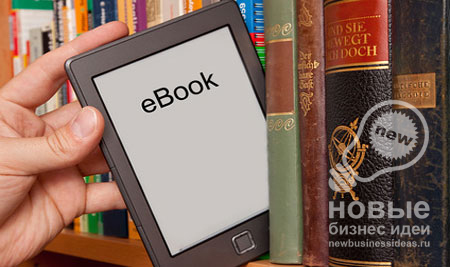Business Idea: Digitizing Paper Books

💡 Want more business insights? Stay ahead of the curve with our exclusive updates!
👉 Join our Telegram channel for daily business ideas and expert tips.
👉 Follow us on Facebook to never miss a trend or update!
Don’t just read—connect, grow, and innovate with us today!
With the rise of tablets and e-readers, electronic books are becoming increasingly popular. This trend is evident to all. In fact, in the United States on Amazon.com, the number of e-books sold last year exceeded the number of their paper counterparts. Unfortunately, this trend is not yet observed in many European countries. This is partly due to the fact that fewer people are reading compared to before. Additionally, piracy plays a role in hindering the development of this market. Nevertheless, there are readers and books that cannot even be found among pirates. That leads us to the next business idea.

Electronic pirated copies of paper books are often low-quality scans that make reading difficult even with high-resolution copies. This is where enterprising individuals should take note of an interesting Japanese service.
Service Overview: Bookscan

The service provided by bookscan.co.jp allows anyone, for a small fee, to obtain an electronic version of any book. Here's how this Japanese service works:
- Customers visit the website, register, and pay for the service.
- They then mail the physical book to the address provided on the website.
- Upon arrival, the book's binding is separated from the pages before scanning.
- Customers receive an emailed pdf file of the electronic book.

Digitizing books is a straightforward process. The unique aspect of this service is that the digitized book is intended for personal use only and not shared online, thus avoiding piracy concerns. The cost of digitizing a book depends on the number of pages. For instance, Bookscan charges around 100 yen for a 350-page book, which is approximately one dollar.

One drawback of book scanning services is the inability to recognize text (to convert images into characters). This limitation may affect owners of 6-inch e-readers, which are quite popular and often struggle with reading pdf files. This raises the question: why doesn't Bookscan offer text recognition as an additional service, even for an extra fee? While text recognition is not as quick and easy as scanning, there are excellent programs available today, such as ABBYY FineReader.

Therefore, there is a potential demand for book digitization services in European countries, especially considering the lack of diverse e-book stores and poor quality found in pirated scans, making it challenging to find specific books, especially non-fiction works.
If you find this business idea appealing, consider launching a website, purchasing a scanner, recognition software, and giving it a try. You can also expand your services by digitizing video cassettes, vinyl records, photographs, slides, and more.

💡 Want more business insights? Stay ahead of the curve with our exclusive updates!
👉 Join our Telegram channel for daily business ideas and expert tips.
👉 Follow us on Facebook to never miss a trend or update!
Don’t just read—connect, grow, and innovate with us today!





































.jpeg)













Note: Comments are being moderated and may take a while to appear. There is no need to resubmit your comment.